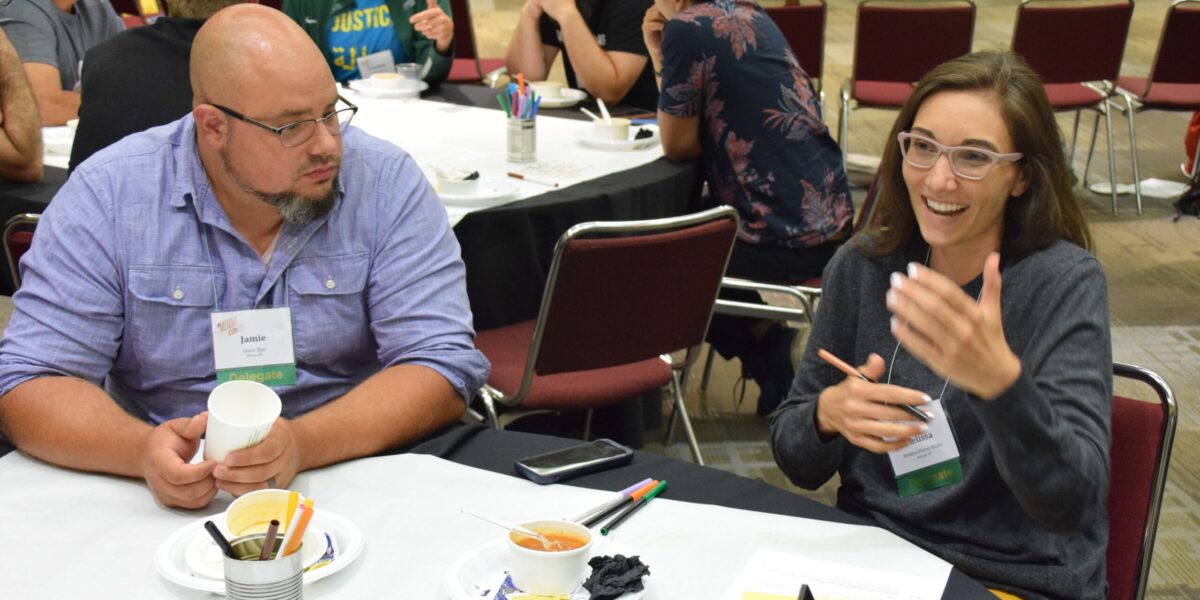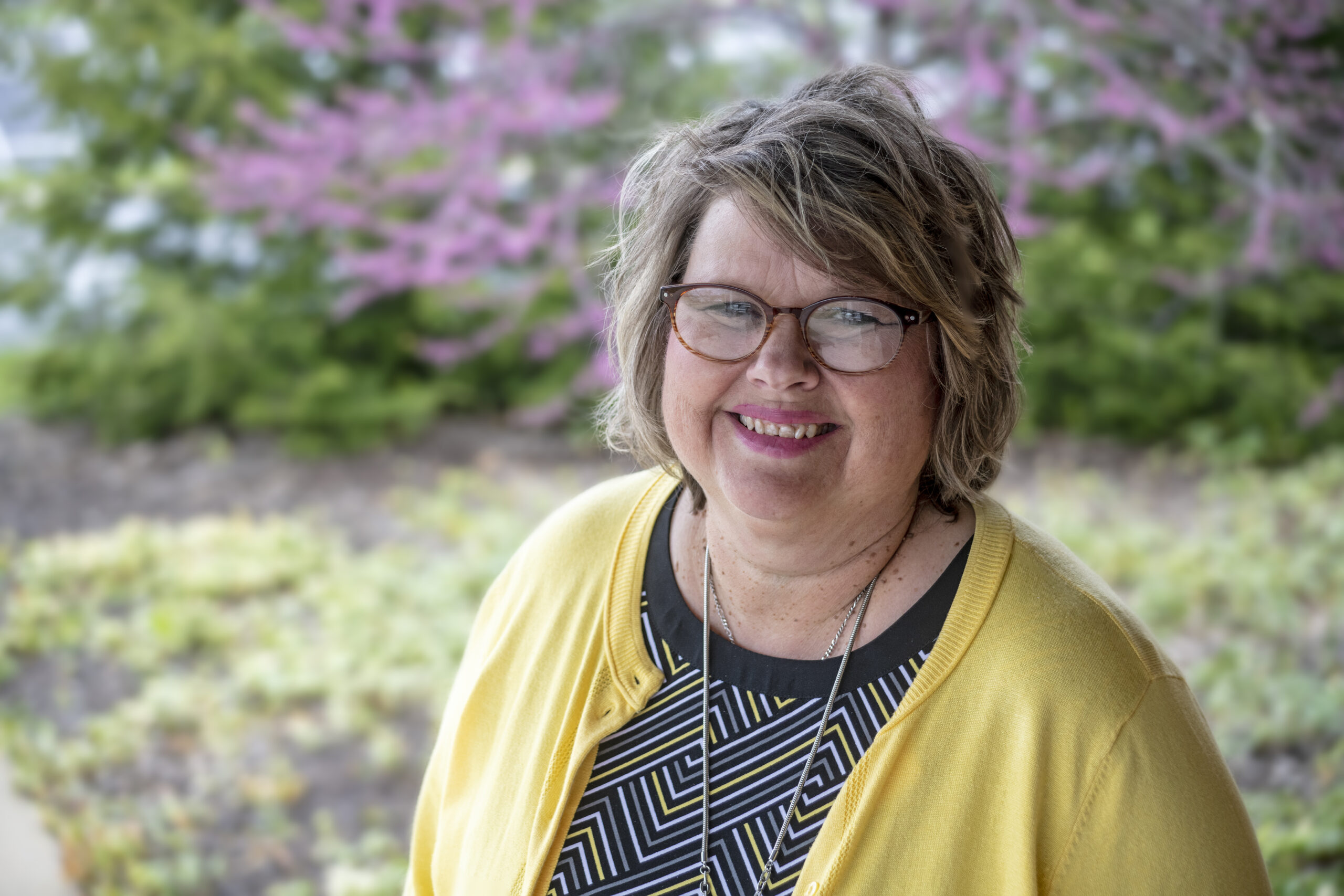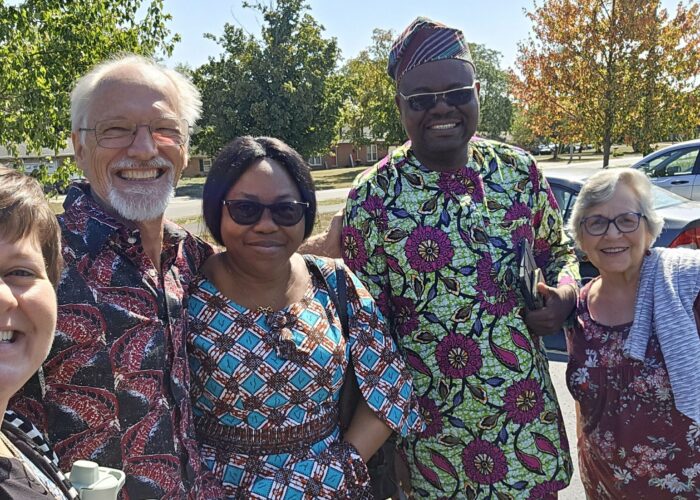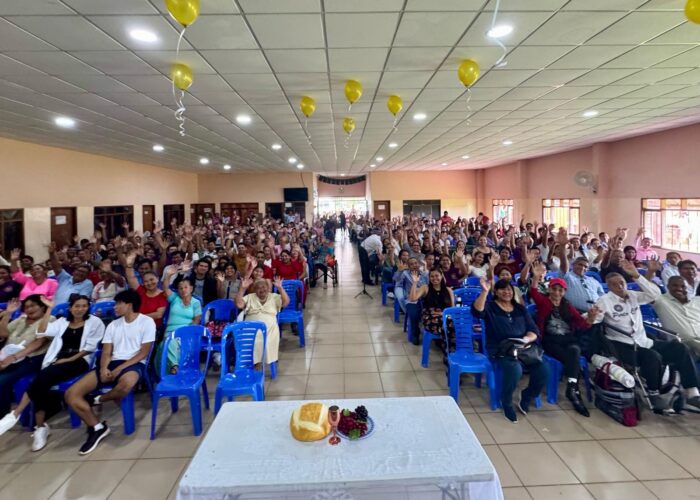KANSAS CITY (Mennonite Mission Network) – Jason Boone, minister for Peace and Justice for Mennonite Mission Network, believes 21st-century peacemaking is not about leaders setting the agenda.
Rather, it’s about people in the "trenches" of daily life creating new ways to wage peace together in an increasingly violent world, said Boone, one organizer of Journey Forward: Peacemaking. The daylong pre-conference event was held July 2 at Kansas City Convention Center, site of MennoCon19.
"It was so invigorating today to see how many diverse forms of peacemaking are taking place throughout our grassroots communities," Boone said. "It’s no longer about someone tapping us on the shoulder and telling us what to do. We are creating new opportunities from the ground up."
Decades beyond the galvanizing anti-war and anti-racism movements of the 1960s and 1970s, Anabaptists from many walks of life are turning to each other at multiple grassroots levels for support, as well as seeking out more ecumenical partnerships.
For example, the gathering’s 50 participants came from a variety of Mennonite Church USA’s area conferences, agencies, constituent groups, and congregations. And many of those participants are also working across denominational and faith-group lines to work in unity for peace in a fractured world.
Boone, who guides the Peace and Justice Support Network for Mission Network, was joined in the event planning by Sue Park-Hur, denominational minister for Leadership Development and Transformative Peacemaking for Mennonite Church USA; and Jessica Buller, Mennonite Central Committee’s (MCC) Peace Education coordinator. Together, they shaped the gathering’s goals:
1. Map the existing peace resources and activities present within Mennonite Church USA.
2. Name current inward and outward challenges and realities in doing peace work.
3. Envision a regular gathering of peacemakers to strategize together.
By the end of the day, participants had formed new, informal alliances that they hoped to further galvanize going forward. Two participants who said they welcome ongoing peacemaking efforts across disciplines and agencies are H. A. Penner of Akron (Pennsylvania) Mennonite Church, and Sarah (Thompson) Nahar of Elkhart, Indiana.
Penner is coordinator of the 1040 for Peace.org. That group explores possibilities for withholding an amount of individual taxes annually to protest government military spending. "I am encouraged this is happening after not having something this broadly organized for so many years," he said. "I appreciate what the denomination is doing to support and encourage peacemaking, for individuals and among area conferences and congregations.
Sarah (Thompson) Nahar, who has engaged peace- and justice-making in a variety of venues – including MCC, Christian Peacemaker Teams, and Mennonite Voluntary Service – said she appreciated how the gathering symbolized peacemaking work in ecological terms. "I am grateful we are doing this work from a planetary perspective, because it is all of creation, not only humans, who care about peace," she said.
Boone and Park-Hur worked closely with Dr. Catherine Barnes on planning and executing the gathering. Barnes formerly worked with Mennonite Church USA in the Future Church Summit process design that helped to shape Journey Forward.
"Participants all seemed to have a deep curiosity about others’ kind of peace work and were in earnest about having conversations with each other," Barnes said. "Though they came from different places and challenges, they all seemed to share the same underpinnings and values in common."
Park-Hur said she hopes the gathering sparks future, ongoing conversations "We wanted to open the conversation so we can expand the circle," she said.
"We realize we can’t do things the way we have done them in the past – that we need to build new alliances and coalitions to remain relevant and faithful to Jesus in the 21st century," Boone said. "Even as the core of Mission Network’s service efforts are rooted in the peace and justice of a holistic, Christ-centered gospel, our agency also needs to link arms with other groups to do together what none of us can do alone."





